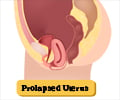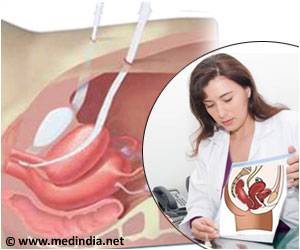Perioperative vaginal estrogen might not help in preventing prolapse after surgery but it was found that it considerably reduced symptoms in patients with vaginal atrophy.
- Vaginal estrogen during prolapse surgery did not improve the outcomes of post-operative prolapse
- Most recurrences were anatomical in nature, with pelvic organs descending beyond their normal position being the primary concern
- The group using vaginal estrogen showed significantly improved vaginal tissue quality, as assessed by surgeons during the operation
Cost-Effectiveness of perioperative Vaginally Administered estrogen in postmenopausal women undergoing prolapse surgery (EVA trial): study protocol for a multicenter double-blind randomized placebo-controlled trial
Go to source). A recent clinical trial aimed to shed light on whether perioperative vaginal estrogen, a treatment sometimes recommended by clinicians, can reduce the risk of prolapse returning after surgical repair. We'll break down this study in simple terms to help you understand its findings and implications (1✔ ✔Trusted Source
Perioperative Vaginal Estrogen as Adjunct to Native Tissue Vaginal Apical Prolapse Repair
Go to source).
Between December 2016 and February 2020, these women were enrolled in urogynecology clinics and randomly divided into two groups. One group received vaginal estrogen cream, while the other received a placebo (a substance with no therapeutic effect). The cream was applied vaginally nightly for two weeks before surgery and then twice weekly for at least five weeks leading up to the operation. After surgery, both groups continued with twice-weekly applications for 12 months.
Did Vaginal Estrogen Make a Difference?
The main goal of the study was to determine whether vaginal estrogen had any impact on preventing the recurrence of prolapse within 12 months after surgery. Recurrence was defined in three ways:Anatomical/objective prolapse:
This means that the pelvic organs descended beyond their normal position in the vaginal canal.Subjective vaginal bulge symptoms:
This refers to women feeling discomfort or a bulging sensation in the vaginal area.Repeated prolapse treatment:
This included any additional medical or surgical interventions needed to address prolapse.The secondary outcomes included examining how the treatment affected urinary and sexual function, symptoms and signs of urogenital atrophy (a condition where tissues in the genital area become thinner and drier due to decreased estrogen), and any adverse events or side effects (2✔ ✔Trusted Source
Cost-Effectiveness of perioperative Vaginally Administered estrogen in postmenopausal women undergoing prolapse surgery (EVA trial): study protocol for a multicenter double-blind randomized placebo-controlled trial
Go to source).
Out of the 206 women initially involved, 186 underwent surgery. The average age of these participants was 65 years old. The primary outcome, which focused on prolapse recurrence within 12 months, showed that vaginal estrogen did not significantly reduce the risk. In fact, the incidence of failure was 19% for those using vaginal estrogen and 9% for those using a placebo.
It's important to note that when recurrence did happen, it was most often related to the anatomical aspect, where the pelvic organs descended beyond their normal position. Vaginal bulge symptoms and the need for repeated prolapse treatments were less common.
Interestingly, the surgeons found that the vaginal tissue quality and estrogenization were better in the group that received vaginal estrogen at the time of the operation.
Impact on Vaginal Tissue Quality
The study also looked specifically at a subset of participants who experienced moderately bothersome symptoms related to vaginal atrophy (thinning and drying of vaginal tissues) at the beginning of the trial. For this subgroup, the results were somewhat different. The vaginal atrophy symptoms improved significantly at 12 months for those who used vaginal estrogen (2✔ ✔Trusted SourceCost-Effectiveness of perioperative Vaginally Administered estrogen in postmenopausal women undergoing prolapse surgery (EVA trial): study protocol for a multicenter double-blind randomized placebo-controlled trial
Go to source).
In summary, the study didn't find significant evidence that using vaginal estrogen before and after surgery for prolapse repair improved the overall success rates of the surgery. However, it did seem to improve the quality of vaginal tissues for those with bothersome vaginal atrophy symptoms (2✔ ✔Trusted Source
Cost-Effectiveness of perioperative Vaginally Administered estrogen in postmenopausal women undergoing prolapse surgery (EVA trial): study protocol for a multicenter double-blind randomized placebo-controlled trial
Go to source),(3✔ ✔Trusted Source
Vaginal Estrogen Preparations: A Review of Safety and Efficacy for Vaginal Atrophy
Go to source).
It's important to remember that every medical study has limitations, and this one is no different. Factors like individual patient characteristics and variations in surgical techniques can influence outcomes. So, while this study provides valuable insights, it's essential to consider the bigger picture and consult with your healthcare provider for personalized advice if you're dealing with vaginal prolapse or related issues.
In the end, medical research like this is a critical step in advancing our understanding of treatments and their effectiveness. It helps doctors make informed decisions and empowers patients to make the best choices for their health and well-being.
References:
- Perioperative Vaginal Estrogen as Adjunct to Native Tissue Vaginal Apical Prolapse Repair - (https://jamanetwork.com/journals/jama/article-abstract/2808329)
- Cost-Effectiveness of perioperative Vaginally Administered estrogen in postmenopausal women undergoing prolapse surgery (EVA trial): study protocol for a multicenter double-blind randomized placebo-controlled trial - (https://bmcwomenshealth.biomedcentral.com/articles/10.1186/s12905-021-01587-9)
- Vaginal Estrogen Preparations: A Review of Safety and Efficacy for Vaginal Atrophy - (https://www.liebertpub.com/doi/10.1089/154099902762203704)
Source-Medindia
















